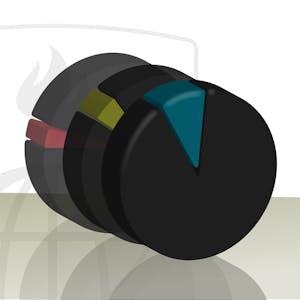Hypothesis Testing in Public Health
Biostatistics is an essential skill for every public health researcher because it provides a set of precise methods for extracting meaningful conclusions from data. In this second course of the Biostatistics in Public Health Specialization, you’ll learn to evaluate sample variability and apply statistical hypothesis testing methods. Along the way, you’ll perform calculations and interpret real-world data from the published scientific literature. Topics include sample statistics, the central limit theorem, confidence intervals, hypothesis testing, and p values.
Use statistical methods to analyze sampling distribution
Estimate and interpret 95% confidence intervals for single samples
Estimate and interpret 95% confidence intervals for two populations
Estimate and interpret p values for hypothesis testing
Syllabus
Syllabus - What you will learn from this course
Week 1
Sampling Distributions and Standard Errors
Week 2
Confidence Intervals for Single Population Parameters
Confidence Intervals for Population Comparison Measures
Week 3
Two-Group Hypothesis Testing: The General Concept and Comparing Means
Week 4
Hypothesis Testing (Comparing Proportions and Incidence Rates Between Two Populations) & Extended Hypothesis Testing
Project
FAQ
When will I have access to the lectures and assignments?
Access to lectures and assignments depends on your type of enrollment. If you take a course in audit mode, you will be able to see most course materials for free. To access graded assignments and to earn a Certificate, you will need to purchase the Certificate experience, during or after your audit. If you don't see the audit option:
What will I get if I subscribe to this Specialization?
When you enroll in the course, you get access to all of the courses in the Specialization, and you earn a certificate when you complete the work. Your electronic Certificate will be added to your Accomplishments page - from there, you can print your Certificate or add it to your LinkedIn profile. If you only want to read and view the course content, you can audit the course for free.
Is financial aid available?
Yes. In select learning programs, you can apply for financial aid or a scholarship if you can’t afford the enrollment fee. If fin aid or scholarship is available for your learning program selection, you’ll find a link to apply on the description page.
Reviews
Simply the best course ever illustrated so far!! Instructor Dr. John is an awesome motivator and true passionate instructor!
excellant descriptions, good examples and challenging practice sessions. Better if some more were added about ANOVA also. If it is considered as advanced , then it is ok. Good experience
You have to use outside sources and practice questions to really understand the material. This course makes you think and demands that you know the information. It was a great class. Thank you.
Excellent course, excellent teaching. Prof McGready knows his stuff and also knows how to teach it. The projects exercices are fun to work on and see how statistics is used in research.
